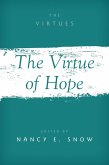In many ways, the virtue of courage seems to be one of the most ubiquitous and simple virtues, and that apparent simplicity may result in courage garnering less attention than many other virtues. Another reason could be the ancient focus on courage as a masculine and martial virtue, which brings into question its relevance in contemporary society. However, the contributors to this volume show, in vibrant and compelling ways, that all these presumptions are invalid. They demonstrate that courage is anything but simple, as important to women as to men, far broader than the martial realm, and that it has great relevance to many contemporary concerns. The Aristotelian perspective is the most well-known philosophical approach to virtues. According to this approach, courage is flanked by the vices of deficiency (cowardice) and excess (rashness) and can be understood in terms of the values it maintains or protects, with greater risks justified by greater importance of the value at stake. But this is not the only way to understand courage: While some chapters follow a neo-Aristotelian line in their presentation, others also offer Stoic, Confucian, Christian or Thomist, Jewish, and African perspectives, which bring other important insights about courage in personal, political, and spiritual realms to the fore-such as the communal, ethnic, and religious elements of courage. Other chapters ask what place courage has in healthcare or contemporary career development, and how courage might be applied to ordinary citizens as well as leaders in contemporary liberal democracies. These essays make it clear that reflections on courage are highly salient in the wake of the recent COVID-19 pandemic, ongoing global political unrest, and profound uncertainty about the future, as it is courage that enables people to advance and protect so many human values, whether the risks are physical, psychological, or social.
Dieser Download kann aus rechtlichen Gründen nur mit Rechnungsadresse in A, B, BG, CY, CZ, D, DK, EW, E, FIN, F, GR, HR, H, IRL, I, LT, L, LR, M, NL, PL, P, R, S, SLO, SK ausgeliefert werden.









